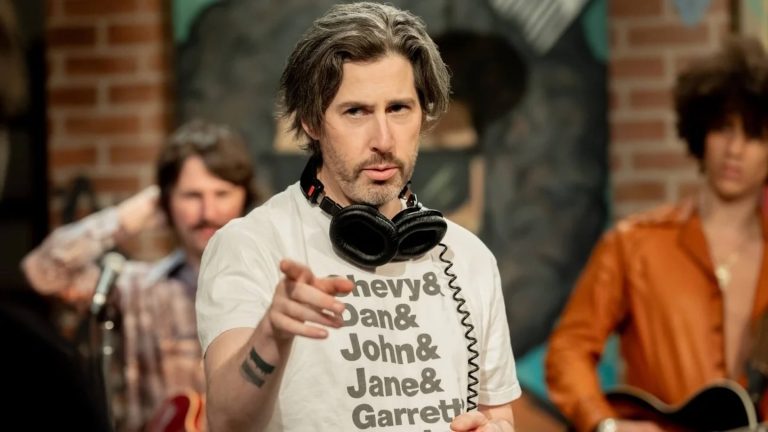9 Reasons Screenwriting Is Exactly Like Poker

What screenwriting lessons can screenwriters learn from the game of poker?
Poker. The pastime of America’s underbelly. A game of high or low stakes, depending upon the table that you are sitting at.
Screenwriting. The pastime of Hollywood (and beyond). A career of high or low stakes, depending upon what level of the totem pole you, the screenwriter, is on.
It’s true that all too often, it’s become a trope in movies and life that the themes of poker are applied to everything from business to sports. Here we will embrace that trope and showcase how screenwriting really is like poker — in this case, Texas Hold 'em — and that screenwriters can learn some very valuable lessons when comparing the two.
1. Sitting at the table
In poker, you can’t play unless you sit. Plain and simple. Most people don’t. They’re afraid of the pressure. They’re afraid of exposing their nerves and their self-consciousness. They’re afraid that they’ll make the wrong plays as everyone watches and they’re afraid that the competition will crush them. Some come to the table overconfident. They’ve played the online games and think that they can hack the show. Yet once they get there, they’re crushed.
In screenwriting, you can’t chase that dream unless you write some scripts and take them out onto the market. Most people don’t chase their dreams. They’re afraid that they aren’t good enough. They’re afraid of letting others see their writing. They’re afraid that they’ll write bad scripts and no one will want to read them, and they’re afraid that if they do, the competition will crush them because they won’t be good enough. Some come into screenwriting overconfident. They’ve written a script or two and think they are the second coming of Quentin Tarantino. Yet once they start to feel the rejection of Hollywood, they’re crushed.
In both cases, if you don’t try, you’ll never know if you’re any good. And once you do try, you’re accomplishing what most people never have the guts to do — there’s honor in that alone. Not every poker player can win the big pots and not every screenwriter can see their screenwriting dreams come true. However, they’re honorable because better to try, than to regret not ever trying at all.
2. Playing With the Right Cards
In poker, you can’t win playing bad cards. Sure, some schmuck playing a seven and two can luck out with a good flop (see below), but overall, you have to bet with the best hands. It’s all about odds. The better cards you have, the better the odds of winning. A Jack and five is a below average hand. It may have some play in certain situations, but it’s nothing compared to having an Ace and King, which has the better odds of winning a hand.
In screenwriting, you can’t succeed with bad scripts. Too many novice screenwriters try to market their first script, which is almost always their worst because they haven’t honed their skills. Sure, some screenwriter wrote Sharknado and gave life to a rather strange and successful franchise, but overall, you have to have great scripts to bring to the powers that be. And great scripts aren’t enough. You have to have great concepts. Concepts that the powers that be are engaged by because there’s a big audience for them. It’s all about odds. The better concepts you have, the better the odds of success you’ll have to garner attention from the powers that be and possibly selling something or getting that coveted writing assignment. And all too often, great concepts are bred in great genres. Genres that have better odds of attracting a bigger audience.
It is a business. A small, quirky drama is a below average script to have. It does have a place somewhere (specialty companies and indie cinema), but it’s nothing compared to having a high concept action, thriller, suspense, horror, or comedy script — all of which have the best odds of attracting the powers that be.
On a side note, in poker, you can’t win with one card. In screenwriting, you can’t succeed with just one script, because even if you do luck out and get into the room of the powers that be, the first question they’ll ask is, “What else do you have?”
3. The Flop
In poker, the flop comprises the first three community cards dealt on the table. This is where you see if the cards in your hand are any good and worth betting more on.
In screenwriting, the equivalent to the poker flop is doing your research and seeing what studios, production companies, and producers are making that best fit the scripts (your cards) you have. This is where you see if there is a place in the film industry for what you’re writing and if those scripts are worth spending the time on as far as marketing them.
You have to follow the success of others because the powers that be are doing just that. There’s a reason why you shouldn’t write fantasy features or westerns. They are high risk and often don’t make a lot of money, so producers and studios are scared of them — unless, of course, they are based on proven material. Dances with Wolves was adapted from a popular paperback novel, and The Lord of the Rings was based on classical literature. Smaller dramas and character pieces have their place to be sure — specialty companies and indie cinema — but they aren’t money makers a majority of the time so the powers that be aren’t actively looking to produce them unless major talent is attached.
4. The Turn
In poker, the turn comprises the fourth community card dealt on the table. This is where you see if your betting after the flop has paid off, and furthermore if your cards are still worth betting on.
In screenwriting, the equivalent to the poker turn is getting the powers that be to read your script. You’ve chosen to play the game with great scripts (cards), and you’ve done your research and found excellent places to submit them to. Places where your scripts would have a good fit. And now, even after multiple rejections, you’re at the point where some have requested the script(s). This is a major turning point (pun intended) in your screenwriting journey. This is where you find out if your gambling has paid off enough to be considered for possible purchase or assignment.
5. The River
In poker, the river comprises the fifth and final community card dealt on the table. This is where you see if your betting has paid off and if you’re going to possibly win the hand.
In screenwriting, the equivalent to the poker river is when the powers that be actually love your script and invite you in for meetings or consider you for representation in the cases of agency and management submissions. When you’ve gotten to this point, you know that things are playing out well for you thus far. You’ve lasted this long. You chose to play the game with great scripts (cards), you’ve done your research and gotten them to the right powers that be (the flop), you’ve had the powers that be request to read your scripts (the turn), and you’ve now been told that thus far, you’re doing something right. This is another pinnacle step in the screenwriter’s journey. This is success in-of-itself, no matter what happens, because thousands would “kill” to be where you are at this point. It’s exciting. It really is.
6. The Showdown
In poker, this is where the remaining players have placed their final bets and have shown their cards. This is where you discover if you’ve won or lost the hand.
In screenwriting, the equivalent of the poker showdown is finding out how the meetings went, if they responded well to you and the script, and if they are willing to either purchase your script — or option in lesser cases — or assign you to a script that they’ve been developing or, in the case of agency or manager submissions, if they are willing to represent you.
If they do any of the above, you’ve succeeded. You’ve won the hand. It’s time to celebrate because you’ve now done what most will never do. You’ve defied the odds. You’ve played a good “hand” because you’ve developed great scripts (cards), got them to the right people, secured meetings and consideration, and now you’ve won them over because of all of that. However…
7. More and More Hands to be Played
In poker, winning one hand isn’t enough. You have to reset with each and every hand. Your winnings from that first won hand won’t always last. You have to keep grinding it out through the tough times and continue to play great cards. But they don’t always come when you need them to. And even when you do have great cards, the flop, the turn, or the river don’t always work out to your advantage. But to stay in the game and increase your odds of winning, you have to continue to play. If you don’t, you’re never going to win another hand.
In screenwriting, selling one script or getting one assignment isn’t enough. I speak from experience. You have to reset after every deal because succeeding with one script doesn’t always guarantee that you’ll succeed with others. You have to keep grinding it out through the tough times and continue to develop and write great scripts. Sometimes you’ll write some duds. It happens more often than not. Sometimes you’ll feel like you’ve written a decent script, but nobody is biting. And even when you get the powers that be to read your scripts, and you get those meetings or consideration, they don’t always work out to your advantage. But to stay relevant and be worthy of consideration, you have to continue to write, write, write, query, query, query, etc. If you don’t, you’re never going to see success again.
There’s always another hurdle. Always. I remember thinking that when I nabbed my first manager, it would be easy from there. Not so. And when I had my first bunch of studio meetings, I thought I was on my way to success. Not so. And when I nabbed my first paid gig with Lionsgate, I thought the floodgates of success would open. Not so. And when I had my first produced script with a name cast, I thought for sure that it would lead to many more jobs right after. Not so.
There’s ALWAYS a horizon to follow. You’ll crest a hill, thinking you’ve made it to your destination, only to see that more hills, plains, and valleys lie before you.
8. Strategy
“You’ve got to know when to hold ‘em. Know when to fold ‘em. Know when to walk away. And know when to run.” – Kenny Rogers in The Gambler
In poker, strategy is key. Some players play the odds, only betting when they have the right cards, while others like to take risks. Yes, sometimes that seven and two (known as the worst hand in poker) can be played, only to yield big wins if the flop is two sevens and a two (that would be a full house) — or other variations. Sometimes you take that shot in the dark to see what happens because what else have you got to lose? Sometimes it’s worth the gamble.
In screenwriting, strategy is key. You develop the best concepts you can that have the best odds of success. And sometimes you are passionate enough about a script that doesn’t fall into that category, but you try to market it anyway — and succeed. Or maybe you take that great concept and script and try to submit it to one of the “big dogs” — that shot in the dark. And sometimes you hit the target despite all odds against you.
As a screenwriter, you have to know when your scripts are ready. You have to know when they just aren’t making an impression with the powers that be, thus, you move on and past them to develop others that will.
9. Luck
In poker, luck is a big part of winning. Some poker players will tell you that luck doesn’t play a part, it’s how you play the game or play that opponent across the table from you. Not so. Without the right cards landing on that table, at the right time, with the right cards that you hold, you can’t win. However, good poker players know how to make their own luck, or at the very least, how to take advantage of opportunities.
In screenwriting, luck is a big part of success. Some established screenwriters will say that it’s about the writing, not about luck. Not so. Without the right script, at the right time, with the right powers that be ready, willing, and able to make your dream come true, you can’t succeed. However, good screenwriters know how to make their own luck, or play the better odds, by writing great scripts with great concepts written in genres that are appealing to those that are buying.
And sometimes, if you apply all of these and play your "cards" right, you'll achieve your dreams and win big...
Ken Miyamoto has worked in the film industry for nearly two decades, most notably as a studio liaison for Sony Studios and then as a script reader and story analyst for Sony Pictures.
He has many studio meetings under his belt as a produced screenwriter, meeting with the likes of Sony, Dreamworks, Universal, Disney, Warner Brothers, as well as many production and management companies. He has had a previous development deal with Lionsgate, as well as multiple writing assignments, including the produced miniseries Blackout, starring Anne Heche, Sean Patrick Flanery, Billy Zane, James Brolin, Haylie Duff, Brian Bloom, Eric La Salle, and Bruce Boxleitner. Follow Ken on Twitter @KenMovies
For all the latest ScreenCraft news and updates, follow us on Twitter, Facebook, and Instagram.
Tags
Get Our Screenwriting Newsletter!
Get weekly writing inspiration delivered to your inbox - including industry news, popular articles, and more!


























